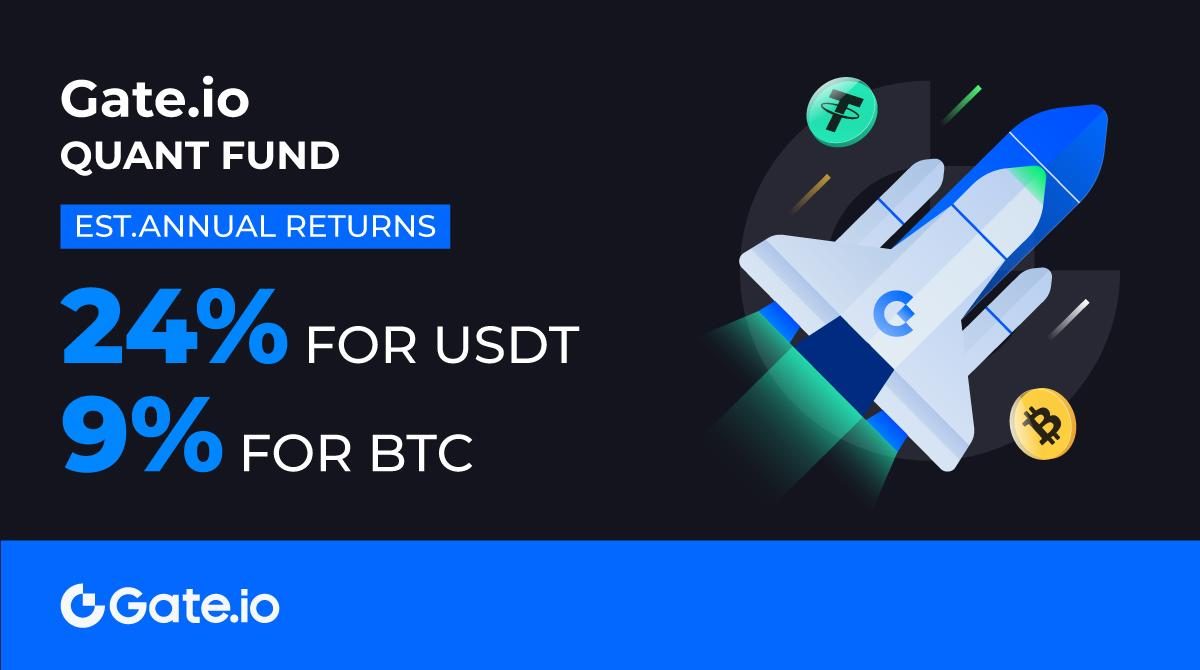Review Elrond ($EGLD) – The Internet Scale Blockchain 2022
Elrond is a distributed transactional computation protocol that relies on a sharded state architecture and a secure Proof of Stake consensus mechanism. While most other blockchain networks require custom hardware and high energy consumption, EGLD runs on average computers.
By employing sharding, a method of parallelizing data & transactions processing, Elrond’s performance will scale up with the number of computers joining the network, reaching more than 100.000 transactions per second while growing increasingly decentralized.

What Is Elrond ($EGLD)?
Elrond is a software that seeks to incentivize a distributed network of computers to run a smart contract platform that aims to prioritize scalability and low transaction fees. In this way, Elrond is designed to compete against major blockchains, such as Ethereum and Zilliqa, aiming to grow an ecosystem of decentralized applications and cryptocurrencies. It features Adaptive State Sharding as its scaling solution and a Proof-of-Stake (PoS) variation called Secure PoS to secure the network. EGLD also contains a WebAssembly-based virtual machine that can support the creation and execution of decentralized applications (dApps).
Further, developers will use the Elrond Integrated Development Environment to write and launch customizable programs that replicate goods and services on its platform. Elrond is powered by its native cryptocurrency, EGLD coin, which is used to interact with applications, send transactions, and incentivize actors supporting the network. For more regular updates from their team, you can check out Elrond’s Blog, which releases categorized updates for technologically or economically curious users.
Outstanding Features
What is the project trying to achieve?
The Elrond network is the first to present a viable solution where all the three aspects of sharding – state, network and transactions – have been implemented at once. Combined with its “Adaptive” component, this novel architecture allows for dynamic network configuration to maintain a high level of security while scaling with demand.
In addition to scaling through sharding, Elrond also approaches the consensus problem with a mechanism called Secure Proof of Stake, which mitigates potential attack vectors when compared to Proof of Work, while also enabling large throughput and fast execution.
By solving some of the hardest consensus and sharding problems in the blockchain space, EGLD is able to provide a very high level of performance on a network made of inexpensive computers, resulting in a very low cost per transaction. In addition to performance and cost, Elrond also stands out through the quality of the developer experience and the resulting boost in usability on the end-user side.
What is the unique selling point?
Developers, validators and businesses use Elrond to build a new internet economy. They give anyone, anywhere easy access to the digital economy, by bringing a 1000x improvement in blockchain speed, scale, cost and user experience.
Massively Scalable
Adaptive state sharding: The optimal approach to blockchain sharding needs to take into consideration advantages from all three sharding types: State, Transactions & Network. Elrond’s approach to increased throughput, called “Adaptive State Sharding”, combines all three sharding types into a solution that improves communication inside the shards and dramatically increases performance through parallel processing.
- Scalability without affecting availability: Increasing or decreasing the number of shards should affect a negligibly small vicinity of nodes without causing downtimes or minimizing them while updating states.
- Dispatching and instant traceability: Finding out the destination shard of a transaction should be deterministic, trivial to calculate, eliminating the need for communication rounds.
- Efficiency and adaptability: The shards should be as balanced as possible at any given time.
Secure and Efficient
Central to Elrond is the Secure Proof of Stake (SPoS), a Proof of Stake governance mechanism that keeps the distributed network of computers running its blockchain in sync. Similar to traditional PoS, SPoS is used by computers running the Elrond software to secure the network, validate transactions, and distribute newly minted EGLD coins.
However, since Elrond’s network consists of shards rather than a single chain, its SPoS consensus mechanism is used to select validating nodes to produce blocks within a shard rather than the entire network. To achieve final settlement, validators must check the work of block producers and sync with other shards within the network. Once a batch of transactions is successfully appended to the Elrond blockchain, these contributors are rewarded with EGLD tokens.
Developer – Friendly
Elrond VM: The Elrond Virtual Machine is a dedicated smart contract execution engine built on WASM. It expands the family of languages available to smart contract developers to include Rust, C/C++, C#, and Typescript. This means you can write smart contracts in whichever language you’re familiar with, compile it of WASM and easily debug its WAT human-readable format.
Roadmap
Important achievements:
- First, live blockchain architecture with state sharding
- 15,000 TPS(scales > 100kTPS), 6s latency, $0.001/tx
- Maiar App: buy, store, earn, pay EGLD, BTC, ETH, BNB
- Smart Contracts, Staking & Delegation, Tokens
- Validated through multiple audits from Trial of Bits & others
Q3 2021
Maiar Exchange: DEX AMM
Q4 2021
- Maiar App new features
- DeFi 2.0: Lending, Synthetics
Q2 2022
- Onchain Governance
- Staking Phase 4

Technical Data
Token Metrics
- Token name: Elrond
- Ticker: EGLD
- Blockchain: BNB Chain (After the mainnet will move to Elrond Network’s Blockchain)
- Token Standard: BEP-2
- Token type: Utility Token
- Total Supply: 23,016,298 EGLD
- Circulating Supply: 21,788,628.86 EGLD (~69%)
You can update the price of EGLD Token on Coincu.com right at: CLICK HERE
Token Allocation
Early Token Distribution Elrond initially issued tokens under the ERD ticker on both the Ethereum and Binance DEX blockchains. A total of 20 billion ERD were initially distributed on Jul. 4, 2019, which is now equal to 20 million EGLD. The initial ERD distribution was as follows:
- 19% was allocated to private investors, vesting over 18 months
- 25% was allocated to IEO investors, with 100% of the tokens released at the date of the IEO on Jul. 4, 2019
- 7% was allocated to Ecosystem rewards, vesting over 12 months
- 8.5% to a Marketing Growth Pool, vesting over 12 months
- 2% to a Community Fund, all vesting over 12 months
- 2.5% was allocated to advisors and locked for one year after the IEO
- 19% was allocated to the Founders and Core members, vesting over 42 months
- 17% was allocated to a Reserve Treasury, vesting over 30 months
Mainnet Launch & New Monetary Policy After its mainnet launch in Jul. 2020, Elrond changed its economic policy, reducing the supply of its native token by 1000x to 20 million. As part of the transition and token swap, ERD holders were able to exchange ERD for the Elrond’s new native token, dubbed EGLD, at a rate of 1000:1.
Token Release schedule
Initial Issuance & New Monetary Policy The supply curve displays the effects of the vesting schedules on liquid supply. It also takes into account the new economic policy Elrond adopted following its mainnet launch in Jul. 2020. Elrond reduced the max supply of its native token by 1000x to 20 million. As part of the transition and token swap, ERD holders were able to exchange ERD for the Elrond’s new native token, dubbed EGLD, at a rate of 1000:1.
Ongoing Emission (Staking Rewards) Elrond features staking rewards to incentivize validator and delegator participation. Network contributors can increase their relative share of overall token holders by helping secure the network. Elrond will have a minimum guaranteed reward amount per year that decreases annually. This inflation rate should reach zero by the eleventh year post-mainnet launch. The hard cap on eGLD’s annual issuance means Elrond must organically grow its fee market over the next decade to pay validators for their continued contributions.

Token Sale
You can buy or sell ada for fiat or other cryptocurrencies using cryptocurrency exchanges. Visit Coincu.com to see the list of exchanges that support EGLD.
Price today: $161.95
ATH: $542.58
More information at: CLICK HERE
Token Use Case
EGLD will allow network participants to conduct any network action, such as submitting transactions, running smart contracts, providing services like staking, or running a node. The Elrond team designed the token to act as a medium of exchange for services built on the platform. They can also stake EGLD on the network to run a node in exchange for inflation rewards.
Market and Community
Market
Currently, new blockchain platforms appear one after another to compensate for the shortcomings that the previous generation has not been able to do. With EGLD, they set a goal that all other blockchains are doing and struggling with. However, achieving and attracting users is still a challenge ahead of EGLD and developers.
Community
EGLD has 500.5K Followers on Twitter

Backers
Team


Partners & Investors

Verdict
With its adaptive state sharding and Secure Proof of Stake protocols, Elrond brings an exciting approach to blockchain scalability, featuring unprecedented transaction speeds and throughput numbers. As an innovative public blockchain designed to scale, Elrond seems to have achieved its goal of preserving security and speed while achieving scalability and sustainability.
Find more information about Elrond:
Website: https://explorer.elrond.com/
Twitter: https://twitter.com/elrondnetwork
Reddt: https://www.reddit.com/r/elrondnetwork/
If you have any questions, comments, suggestions, or ideas about the project, please email ventures@coincu.com.
DISCLAIMER: The Information on this website is provided as general market commentary, and does not constitute investment advice. We encourage you to do your own research before investing.
Alan
Coincu Ventures




















